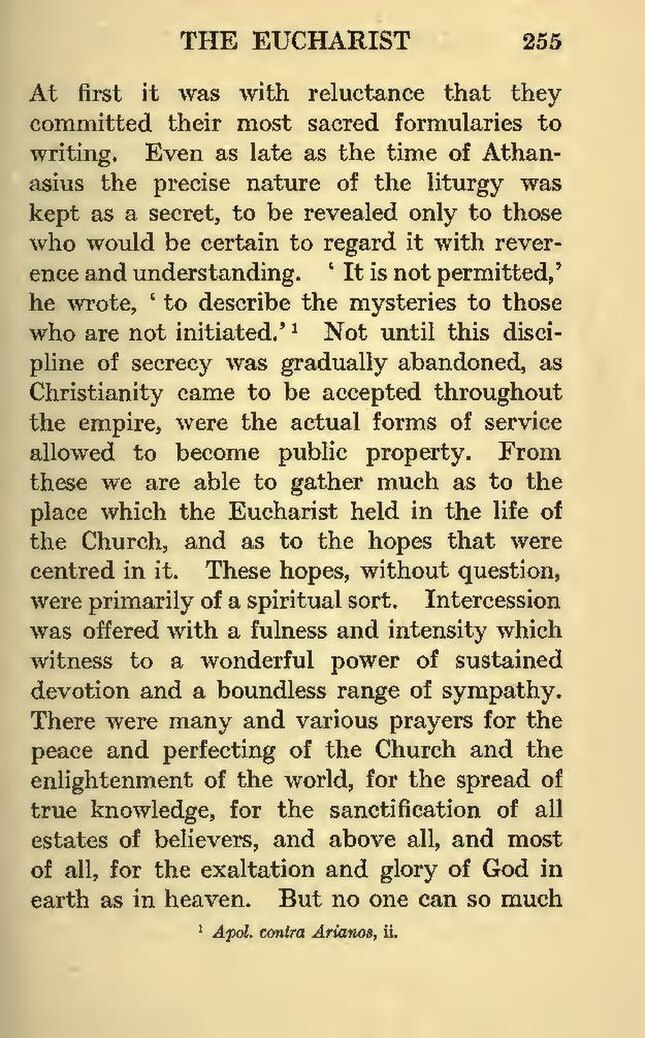At first it was with reluctance that they committed their most sacred formularies to writing. Even as late as the time of Athanasius the precise nature of the liturgy was kept as a secret, to be revealed only to those who would be certain to regard it with reverence and understanding. 'It is not permitted,' he wrote, 'to describe the mysteries to those who are not initiated.'[1] Not until this discipline of secrecy was gradually abandoned, as Christianity came to be accepted throughout the empire, were the actual forms of service allowed to become public property. From these we are able to gather much as to the place which the Eucharist held in the life of the Church, and as to the hopes that were centred in it. These hopes, without question, were primarily of a spiritual sort. Intercession was offered with a fulness and intensity which witness to a wonderful power of sustained devotion and a boundless range of sympathy. There were many and various prayers for the peace and perfecting of the Church and the enlightenment of the world, for the spread of true knowledge, for the sanctification of all estates of believers, and above all, and most of all, for the exaltation and glory of God in earth as in heaven. But no one can so much
- ↑ Apol. contra Arianos, ii.
